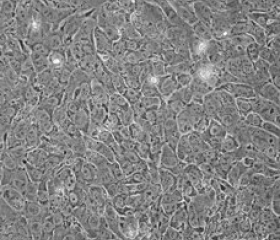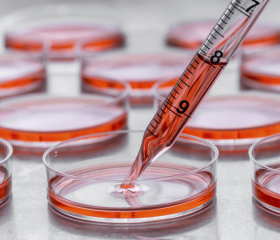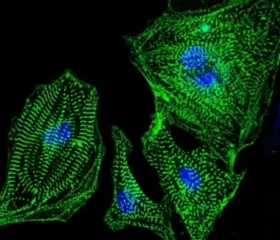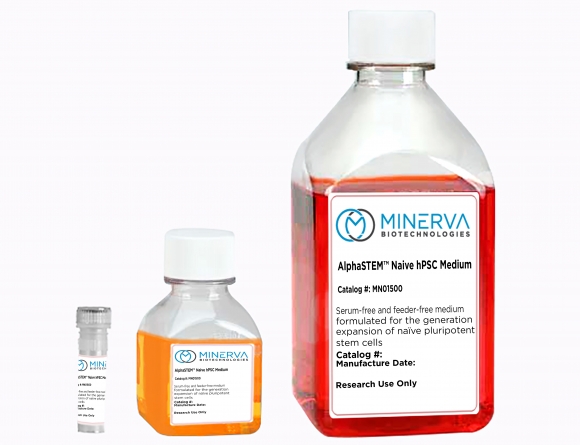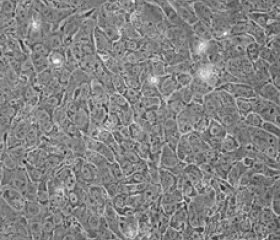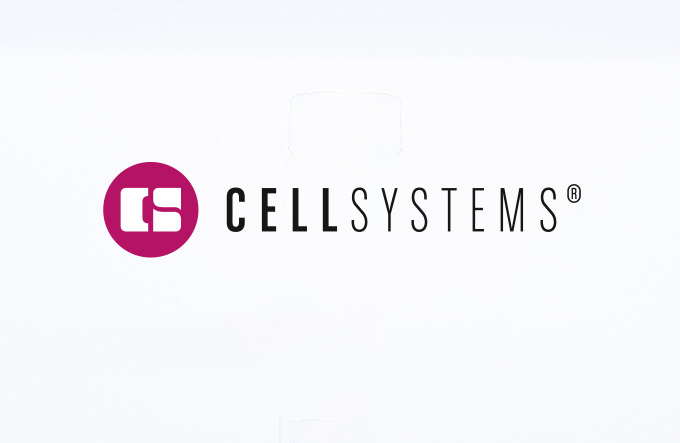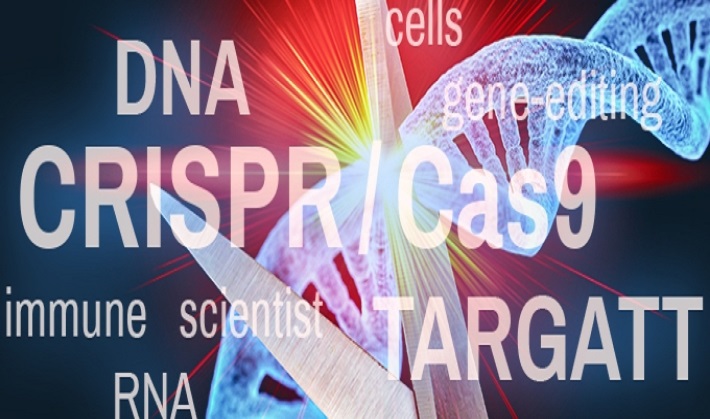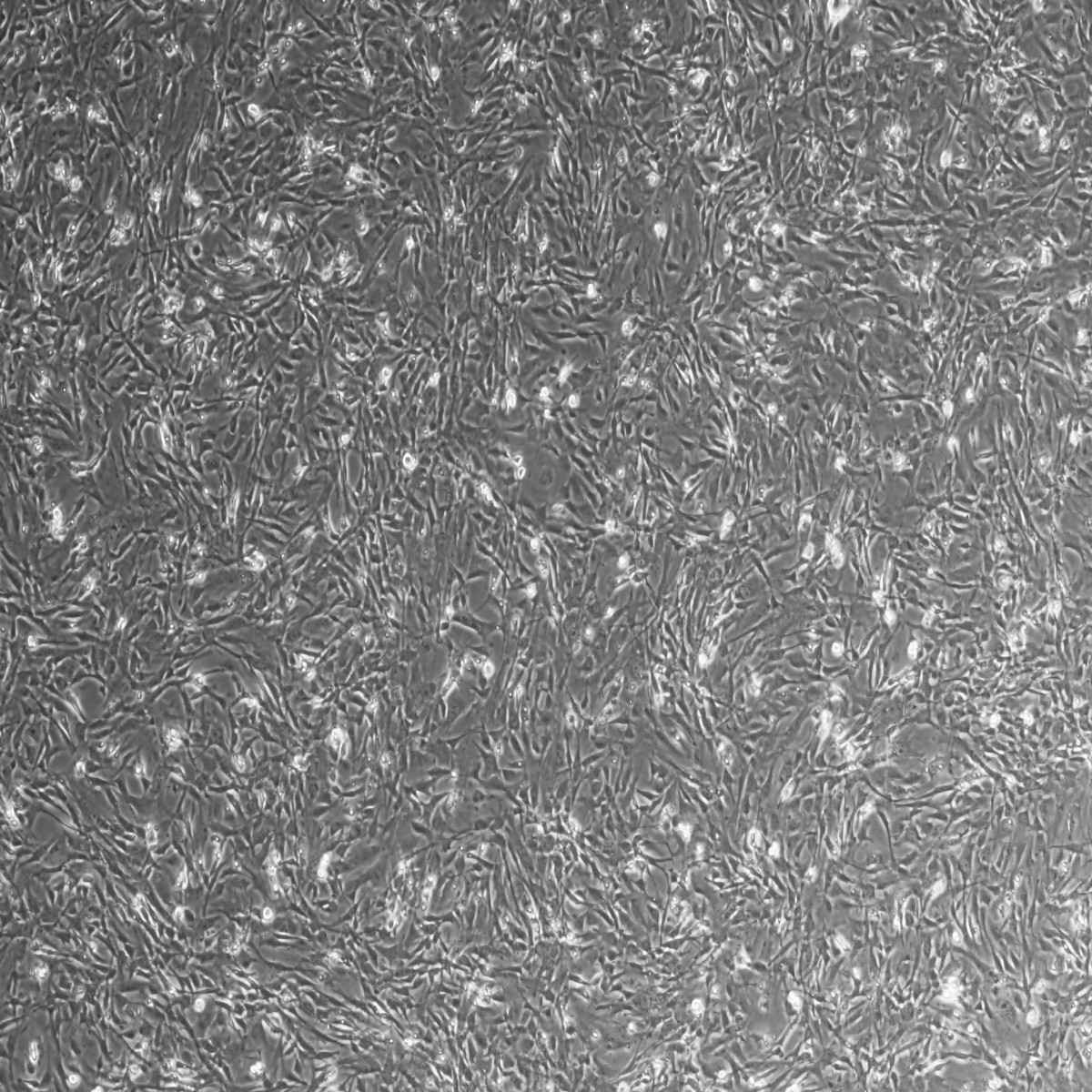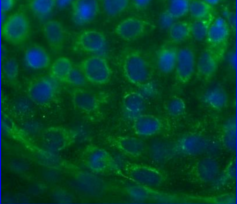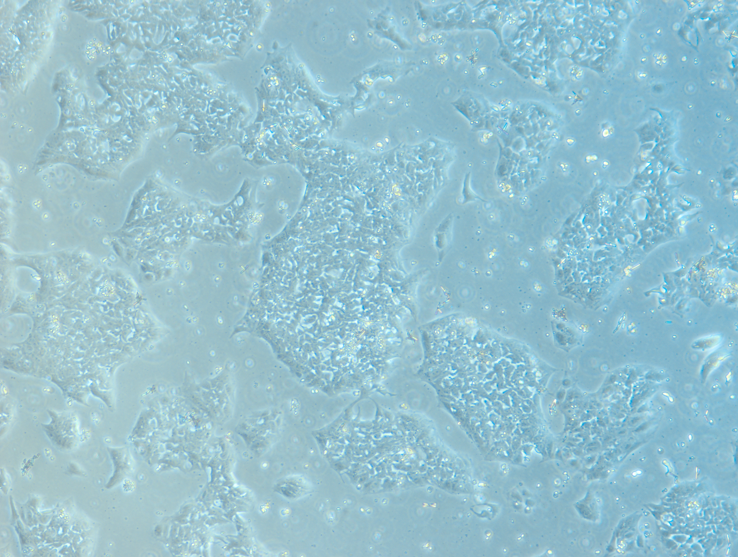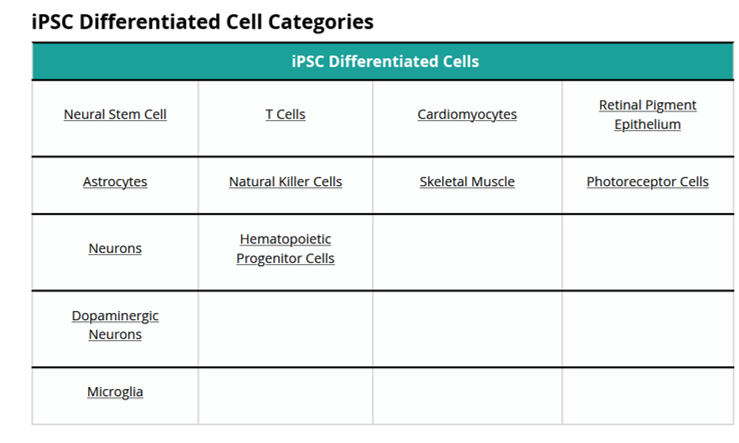iPSC Research
iPSCs: Revolutionizing Disease Modeling, Drug Discovery, and Regenerative Medicine
Shinya Yamanaka’s groundbreaking work on induced pluripotent stem cells (iPSCs) involved identifying a specific set of genes that could reprogram adult cells back into a pluripotent state. The genes initially used by Yamanaka were Oct3/4, Sox2, Klf4, and c-Myc, collectively known as the Yamanaka factors. Later research demonstrated that other combinations of genes could also induce pluripotency, but the original combination proved to be the most effective.
Unveiling the Reprogramming Roles: A Gene Overview
Oct3/4 (Octamer-binding transcription factor 3/4): Oct3/4 is a transcription factor essential for maintaining pluripotency in embryonic stem cells. It regulates the expression of genes involved in self-renewal and pluripotency and is crucial for reprogramming adult cells into a pluripotent state.
Sox2 (SRY (sex-determining region Y)-box 2): Sox2 is another transcription factor involved in maintaining pluripotency and self-renewal in embryonic stem cells. It interacts with Oct3/4 to regulate the expression of pluripotency-associated genes and plays a key role in reprogramming adult cells to an embryonic-like state.
Klf4 (Kruppel-like factor 4): Klf4 is a transcription factor that regulates various cellular processes, including proliferation, differentiation, and pluripotency. It functions in conjunction with Oct3/4 and Sox2 to reprogram adult cells into iPSCs.
c-Myc (cellular Myelocytomatosis oncogene): c-Myc is a proto-oncogene involved in the regulation of cell proliferation, growth, and apoptosis. Its role in reprogramming is to enhance the efficiency of iPSC generation, although its overexpression can also increase the risk of tumorigenesis.
These four transcription factors were introduced into adult somatic cells, such as fibroblasts, using viral vectors. Their expression led to the activation of pluripotency-associated genes and the induction of a pluripotent state resembling that of embryonic stem cells. Yamanaka’s discovery of these factors paved the way for the generation of patient-specific iPSCs, offering new possibilities for disease modeling, drug discovery, and regenerative medicine.
-
ActiCells™ RUO TARGATT™ Hypo hiPSC Knock-in Kit
Cat.-Nr: AST-9650
ActiCells™ RUO TARGATT™ Hypo hiPSC Knock-in Kit Rapidly advance your allogeneic development with a hypoimmunogenic iPSC platform that... Read More
-
iPS Cells (iPSCs from Fibroblasts, Caucasian, Female, Age 47, Episomal)
Cat.-Nr: ASE-9209
iPS Cells (iPSC from Fibroblasts, Episomal, Female, Control Lines for Genome Editing Services) MTA required for industry. Contact us today to... Read More
-
ActiCells™ RUO Hypo hiPSCs
Cat.-Nr: ASE-9550
Accelerate your allogeneic development by starting with a hypoimmunogenic iPSC platform reprogrammed from CD34+ cord blood cells. ... Read More
-
AlphaSTEM® Culture Substrate
Cat.-Nr: MC01360
AlphaSTEM® Culture Substrate is a mouse monoclonal antibody that provides a defined surface for feeder-free generation and expansion of naive... Read More
-
AlphaSTEM® Differentiation Inducer
Cat.-Nr: MD00312
AlphaSTEM® Differentiation Inducer is a synthetic peptide that competitively inhibits the activity of NME7AB, the naturally occurring growth factor... Read More
-
AlphaSTEM® Naïve hPSC Medium
Cat.-Nr: MN01500
AlphaSTEM® Naïve hPSC Medium is a serum-free and feeder-free medium formulated for the generation and expansion of naïve pluripotent stem cells. ... Read More
-
AlphaSTEM® Naïve iPSC Line, Female
Cat.-Nr: MSF0001
AlphaSTEM® Naïve iPSC Line, Female is a zero-footprint, viral-integration-free human induced pluripotent stem cell (iPSC) line derived from... Read More
-
AlphaSTEM® Naïve iPSC Line, Male
Cat.-Nr: MSM0001
AlphaSTEM® Naïve iPSC Line, Male is a zero-footprint, viral-integration-free human induced pluripotent stem cell (iPSC) line derived from newborn... Read More
-
Astrocytes Differentiation Service from iPSC
Cat.-Nr: ASC-8005
Applied StemCell is a leader in iPSC technologies and applies established protocols for the differentiation to a specific celltype.
-
Cardiomyocytes Differentiation Service from iPSC
Cat.-Nr: ASC-8003
Applied StemCell, an expert in stem cell and somatic differentiation technologies offers a high-quality yet affordable custom service to... Read More
-
CF-1 MEF, P2, untreated
Cat.-Nr: ASF-1201
CF-1 MEF Feeder Cells, P2, untreated, are derived from CF-1 mouse embryos and used as feeder layers to support the growth of undifferentiated mouse... Read More
-
CF-1 MEF, P2, untreated
Cat.-Nr: ASF-1202
CF-1 MEF Feeder Cells, P2, untreated, are derived from CF-1 mouse embryos and used as feeder layers to support the growth of undifferentiated mouse... Read More
-
CF-1 MEF, P3, irradiated
Cat.-Nr: ASF-1213
CF-1 MEF Feeder Cells, P3, irradiated, are derived from CF-1 mouse embryos and used as feeder layers to support the growth of undifferentiated mouse... Read More
-
CF-1 MEF, P3, irradiated
Cat.-Nr: ASF-1214
CF-1 MEF Feeder Cells, P3, irradiated, are derived from CF-1 mouse embryos and used as feeder layers to support the growth of undifferentiated mouse... Read More
-
CF-1 MEF, P3, irradiated
Cat.-Nr: ASF-1215
CF-1 MEF Feeder Cells, P3, irradiated, are derived from CF-1 mouse embryos and used as feeder layers to support the growth of undifferentiated mouse... Read More
-
CF-1 MEF, P3, irradiated
Cat.-Nr: ASF-1216
CF-1 MEF Feeder Cells, P3, irradiated, are derived from CF-1 mouse embryos and used as feeder layers to support the growth of undifferentiated mouse... Read More
-
CF-1 MEF, P3, irradiated
Cat.-Nr: ASF-1217
CF-1 MEF Feeder Cells, P3, irradiated, are derived from CF-1 mouse embryos and used as feeder layers to support the growth of undifferentiated mouse... Read More
-
CF-1 MEF, P3, mitomycin-C treated
Cat.-Nr: ASF-1223
CF-1 MEF Feeder Cells, P3, mitomycin-C treated, are derived from CF-1 mouse embryos and used as feeder layers to support the growth of... Read More
-
CF-1 MEF, P3, mitomycin-C treated
Cat.-Nr: ASF-1224
CF-1 MEF Feeder Cells, P3, mitomycin-C treated, are derived from CF-1 mouse embryos and used as feeder layers to support the growth of... Read More
-
CF-1 MEF, P3, mitomycin-C treated
Cat.-Nr: ASF-1225
CF-1 MEF Feeder Cells, P3, mitomycin-C treated, are derived from CF-1 mouse embryos and used as feeder layers to support the growth of... Read More
-
CF-1 MEF, P3, mitomycin-C treated
Cat.-Nr: ASF-1226
CF-1 MEF Feeder Cells, P3, mitomycin-C treated, are derived from CF-1 mouse embryos and used as feeder layers to support the growth of... Read More
-
CRISPR/Cas9 Conditional Knockout iPSC Service
Cat.-Nr: ASC-6013-2
Cell lines with a loss-of-function gene mutation is an invaluable tool for studying and understanding function of genes and gene products. But a... Read More
-
CRISPR/Cas9 Knock-in iPSC Service
Cat.-Nr: ASC-6013-4
Applied StemCell is a leader in both CRISPR genome editing and iPSC technologies. We offer a combination CRISPR iPSC/ ES Cell Genome Editing Service... Read More
-
CRISPR/Cas9 Knockout iPSC Service
Cat.-Nr: ASC-6013-1
Applied StemCell is a leader in both CRISPR genome editing and iPSC technologies. We offer a combination CRISPR iPSC/ ES Cell Genome Editing Service... Read More
-
CRISPR/Cas9 Point Mutation iPSC Service
Cat.-Nr: ASC-6013-3
Point Mutation Cell Lines mimic mutations seen in clinical specimens and are important in vitro disease models to understand role of genes in... Read More
-
Dopaminergic Neuron -mid Brain - Differentiation Service from iPSC
Cat.-Nr: ASC-8007M
Applied StemCell is a leader in iPSC technologies and applies established protocols for the differentiation to a specific celltype.
-
Dopaminergic Neuron Differentiation Service from iPSC
Cat.-Nr: ASC-8007
Applied StemCell is a leader in iPSC technologies and applies established protocols for the differentiation to a specific celltype.
-
DR4 MEF Feeder Cells, P3, MMC (Mitomycin) Treated
Cat.-Nr: ASF-1023
DR4 MEF Feeder Cells, P3, Mitomycin C-treated (MMC), are derived from DR4 mouse embryos and used as feeder layers to support the growth of... Read More
-
DR4 MEF Feeder Cells, P3, MMC (Mitomycin) Treated
Cat.-Nr: ASF-1024
DR4 MEF Feeder Cells, P3, Mitomycin C-treated (MMC), are derived from DR4 mouse embryos and used as feeder layers to support the growth of... Read More
-
DR4 MEF Feeder Cells, P3, MMC (Mitomycin) Treated
Cat.-Nr: ASF-1025
DR4 MEF Feeder Cells, P3, Mitomycin C-treated (MMC), are derived from DR4 mouse embryos and used as feeder layers to support the growth of... Read More
-
DR4 MEF Feeder Cells, P3, MMC (Mitomycin) Treated
Cat.-Nr: ASF-1026
DR4 MEF Feeder Cells, P3, Mitomycin C-treated (MMC), are derived from DR4 mouse embryos and used as feeder layers to support the growth of... Read More
-
DR4 MEF, P2, untreated
Cat.-Nr: ASF-1001
DR4 MEF Feeder Cells, P2, untreated, are derived from DR4 mouse embryos and used as feeder layers to support the growth of undifferentiated mouse or... Read More
-
DR4 MEF, P2, untreated
Cat.-Nr: ASF-1002
DR4 MEF Feeder Cells, P2, untreated, are derived from DR4 mouse embryos and used as feeder layers to support the growth of undifferentiated mouse or... Read More
-
DR4 MEF, P3, irradiated
Cat.-Nr: ASF-1013
DR4 MEF Feeder Cells, P3, irradiated, are derived from DR4 mouse embryos and used as feeder layers to support the growth of undifferentiated mouse or... Read More
-
DR4 MEF, P3, irradiated
Cat.-Nr: ASF-1014
DR4 MEF Feeder Cells, P3, irradiated, are derived from DR4 mouse embryos and used as feeder layers to support the growth of undifferentiated mouse or... Read More
-
DR4 MEF, P3, irradiated
Cat.-Nr: ASF-1015
DR4 MEF Feeder Cells, P3, irradiated, are derived from DR4 mouse embryos and used as feeder layers to support the growth of undifferentiated mouse or... Read More
-
DR4 MEF, P3, irradiated
Cat.-Nr: ASF-1016
DR4 MEF Feeder Cells, P3, irradiated, are derived from DR4 mouse embryos and used as feeder layers to support the growth of undifferentiated mouse or... Read More
-
Hematopoietic Progenitor Cell (HPC) Differentiation Service from iPSC
Cat.-Nr: ASC-8008
Applied StemCell is a leader in iPSC technologies and applies established protocols for the differentiation to a specific celltype.
-
Human ESC/iPSC Neural Crest Stem Cell Differentiation Service from iPSC
Cat.-Nr: ASC-8001C
Human ESC / iPSC Neural Crest Stem Cell Differentiation Service. We will differentiate your ESC/iPSC line into neural crest stem cells (NCSC) by... Read More
-
iPS Cells GMP Grade (iPSCs from CD34+ Cord Blood, Male)
Cat.-Nr: ASE-9280
cGMP Grade iPSC Line was generated from male, CD34+ cord blood using an episomal reprogramming method. Master cell bank or working cell bank... Read More
-
iPS Cells Research Grade (iPSCs from CD34+ Cord Blood, Male)
Cat.-Nr: ASE-9250
Human Induced Pluripotent Stem (hiPS) Cells (Research Grade) were generated from CD34+ umbilical cord blood cells using an epsiomal reprogramming... Read More
-
iPSC Differentiated Cell Categories
Cat.-Nr: ASC-0001C
We offer fully characterized progenitors and differentiated cell lines derived from integration-free iPSCs using feeder-free culture protocols:... Read More
-
iPSC Disease Modeling - Drug Screening
Cat.-Nr: ASC-8901
Drug discovery and development for neurological disorders has lagged far-behind therapeutics for other disease areas.
-
iPSC Disease Modeling - Toxicology Testing
Cat.-Nr: ASC-8902
Traditionally, preclinical toxicology testing for small and large molecule bio-pharmaceutical compounds, chemicals for human consumption and use, and... Read More
-
iPSC Generation Service (Episomal)
Cat.-Nr: ASC-6023
iPSC Generation is a complex process that reprograms adult somatic cells into a pluripotent, embryonic stem cell-like stage. This requires extensive... Read More
-
iPSC Generation Service (Episomal) with Embryoid Body Formation
Cat.-Nr: ASC-6023E
iPSC Generation is a complex process that reprograms adult somatic cells into a pluripotent, embryonic stem cell-like stage. This requires extensive... Read More
-
iPSC Generation Service (Episomal) with Teratoma Formation
Cat.-Nr: ASC-6023T
iPSC Generation is a complex process that reprograms adult somatic cells into a pluripotent, embryonic stem cell-like stage. This requires extensive... Read More
-
iPSC Generation Service (mRNA)
Cat.-Nr: ASC-6022
iPSC Generation is a complex process that reprograms adult somatic cells into a pluripotent, embryonic stem cell-like stage. This requires extensive... Read More
-
iPSC Generation Service (mRNA) with Embryoid Body Formation
Cat.-Nr: ASC-6022E
iPSC Generation is a complex process that reprograms adult somatic cells into a pluripotent, embryonic stem cell-like stage. This requires extensive... Read More


